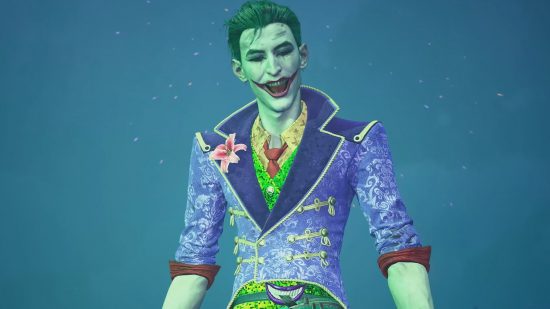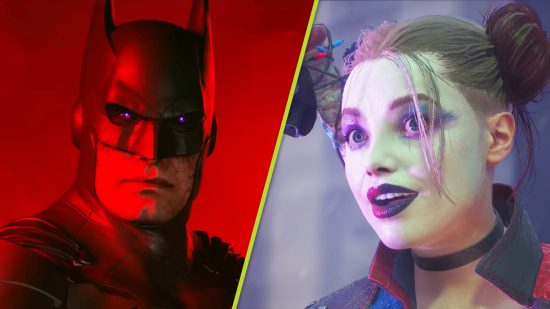Suicide Squad Kill the Justice League genuinely could turn around its divisive reputation, but even as a fan of the Rocksteady Studios looter shooter, I’m struggling to remain hopeful. The game’s launch came and went with complicated degrees of fanfare, and since then, word on future content is slim at best. It just isn’t good enough, and Kill the Justice League can’t afford to be secretive right now. There needs to be a far bigger discussion about the year ahead from Rocksteady.
With that said, be warned of some major story spoilers going forward.
Right now, the main focus for Rocksteady Studios is getting Season 1 out of the door. Aside from the inclusion of the Joker as a new playable character, there isn’t that much information about Season 1’s bigger plans. Sure, the Elseworlds episode of Suicide Squad Insider revealed some unseen environments and teased Brainiac boss fight variants, but how it does impact the game at large? This initial look was presented to us back at the end of January, and nothing else Season 1 related has appeared over the last few weeks. Presently, the open world game is overcoming a series of game-breaking bugs.
I’ve learned more about Rocksteady’s grand plans for Suicide Squad Kill the Justice League from eagle-eyed dataminers like Miller Ross than the developer itself. This includes the arrival of playable characters like a multiverse variant of Mr. Freeze, Batman villain Deathstroke, and the eventual return of the Justice League itself.

The latter is an aspect that could really bring players back to the game, given how a large portion of fans hated Rocksteady’s treatment of Batman in particular. Pieced together through the game’s files and in-game blunders, Rocksteady’s ultimate plan appears to be revealing that Brainiac is actually keeping the real Justice League captive, and harnessing their attributes to create the infused enemies you often fight.
The concept of Justice League clones opens the game up to some potentially excellent story developments, and facing off against far tougher versions of Superman and co. is a tantalizing thought. But there’s a real danger that the game might not even get to actualize these plans. Warner Brothers, the custodian of DC Comics through movies and gaming, is unsurprisingly disappointed with the game’s sales performance so far. On other platforms outside of PS5 and Xbox, Kill the Justice League’s player count is considerably weak.
Yet, Rocksteady is planning to release at least four new seasons this year. That’s according to the game’s end credits, which throws up a graphic depicting how Metropolis will evolve. Whether Warner Brothers will choose to pull the plug on the game beyond 2024 is unknown, but the decision is becoming a highly likely possibility.
It isn’t like Warner Brothers is keen on supporting many of its bigger releases past launch either, as its track record leaves Hogwarts Legacy and Gotham Knights without any meaningful post-launch content. Considering that Hogwarts Legacy was the highest selling game of last year, it is bewildering to see the studio fumble such an obvious slam dunk with the addition of new story based expansions.

It is all giving me Marvel’s Avengers vibes, another game of the same ilk which I believe was worth saving. I put in over 100 hours into Marvel’s Avengers, and I’m near that time with Kill the Justice League too. However, unlike Crystal Dynamics and Embracer Group, Warner Brothers’ authority over the DC Comics brand in gaming puts Rocksteady in a position to succeed. With Warner Brothers looking to revive DC Comics’ reputation on screen with the launch of the DCU, all eyes are on this beloved universe like never before.
Kill the Justice League could play a big part in this, and DC Studios co-head James Gunn himself has confirmed more Arkhamverse adventures will come. Rocksteady has a great history with delivering excellent DLC for the previous Arkhamverse games, and it is evident how much the developer cares about these characters. Kill the Justice League’s world is littered with playful references, grin-inducing moments of fan service, and bold narrative choices that make it a memorable adventure.
But it all become lost to the abyss of dying live service games. With some transparency and reassurance, there might be hope yet for our ragtag gang of reluctant heroes.
